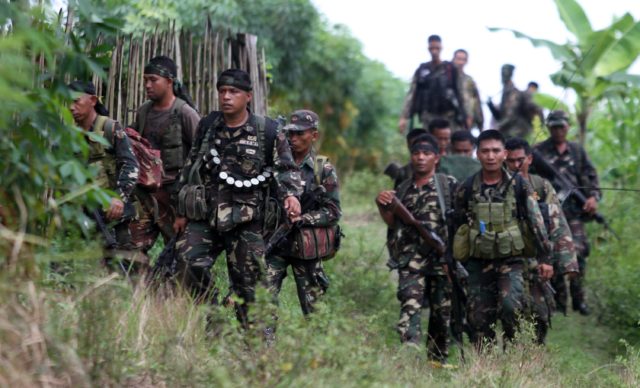
Briefs
Publication: Terrorism Monitor Volume: 19 Issue: 5
By:

Scandinavian Countries Contend with Lingering Influence of Islamic State
Jacob Zenn
In recent weeks, Sweden, Norway, and Denmark have experienced incidents involving Islamic State (IS) members and supporters operating on their territories. On March 8, for example, Sweden prosecuted a 31-year-old woman who had traveled to IS-controlled areas of Syria with her son and then returned to Sweden by air in November 2020. The woman was a convert to Islam and had apparently wanted to experience what living in a caliphate is like. However, she claimed to have been quickly forced to marry an IS fighter in Syria. Working against her at her trial were photos that she posted on Facebook, showing herself with a weapon in Syria. She also sold gold she owned to finance her trip, indicating deliberate intent to stay in Syria. Her ex-husband in Sweden and her son’s father had reported her to the Swedish authorities in 2014 once he learned that she traveled to Syria. Ultimately, the Swedish courts sentenced her to three years in prison (aftonbladet.se, March 8)
Meanwhile, in Norway, a 34-year-old woman is on trial for having lived with IS in Syria for six years (thelocal.no, March 4). She married Chilean-Norwegian Bastian Vasquez there, who became notorious in Syria. Vasquez was executed by IS for the crime of killing the two-year-old son of a former rival, whose wife he later married. Vasquez also appeared in some of IS’s most severe propaganda videos in which he blew up a building where captives were inside (thelocal.no, October 21, 2016). After Vasquez’s death, the 34-year-old woman subsequently married an Egyptian IS fighter and gave birth to a child with him, but he died in battle, which meant she had to marry again. It remains to be seen what the result of her trial will be, but prosecutors argue she tried to recruit other women. There will also be extra spotlight on this case because she is the first women returnee to Syria to be tried for crimes committed there (thelocal.no, March 4).
Further, in February, Denmark broke up a cell of a dozen IS supporters who were plotting operations in Germany and Denmark (thenationalnews.com, February 12). These trials and this Danish case indicate that several years after the fall of IS’ ‘territorial caliphate’ in Syria, the group’s after-effects linger in European countries. In some cases, there will be trials for repatriated members, especially women, whose roles were often more ambiguous than their combatant male counterparts. However, other cases will involve more serious IS-influenced or IS-masterminded attack plots in Europe.
***
The Philippines’ Struggles Against New People’s Army, Succeeds Against Abu Sayyaf
Jacob Zenn
On March 4, the President of the Philippines, Rodrigo Duterte, issued a stark order for the country’s military: “kill them all” (inquirer.net, March 4). Duterte was referring to the Communist New People’s Army (NPA), whose full defeat Duterte calls for by the end of his presidential tenure in 2022. Duterte went so far as to claim that the military and police should not “mind human rights” and that Duterte himself would go to prison for any offences they commit.
The NPA, for its part, is leveraging Duterte’s excesses for its own recruitment campaign. After police killed nine activists from various groups, including union workers, in raids near Manila, the NPA stated that it would “mobilize its units to help secure the people being persecuted and hunted down by the fascist regime” (benarnews.org, March 7). The NPA further announced its willingness to “absorb” anyone who has been victimized by “Duterte’s state terrorism.”
The intensification of the rhetoric between Duterte and the NPA comes after several years of prospective peace talks that have since broken down completely (Terrorism Monitor, January 15). In contrast, while the conflict with the NPA appears likely to escalate, the Philippines has reported several recent successes against Abu Sayyaf. For example, on March 3 and March 8, two sets of seven and 14 Abu Sayyaf surrendered (pna.gov.ph, March 4; sunstar.com.ph, March 10).
Operationally, the army also reported in February that it arrested nine women, including three daughters of an Abu Sayyaf leader, who were preparing to become suicide bombers for the group (aljazeera.com, February 21). As a result of Abu Sayyaf’s struggles, it has reportedly resorted to increased piracy in the waters between the Philippines, Malaysia, and Indonesia (splash247.com, March 5). Unlike the NPA, however, it does not appear to be exploiting the country’s political situation to ratchet up a recruitment drive.




